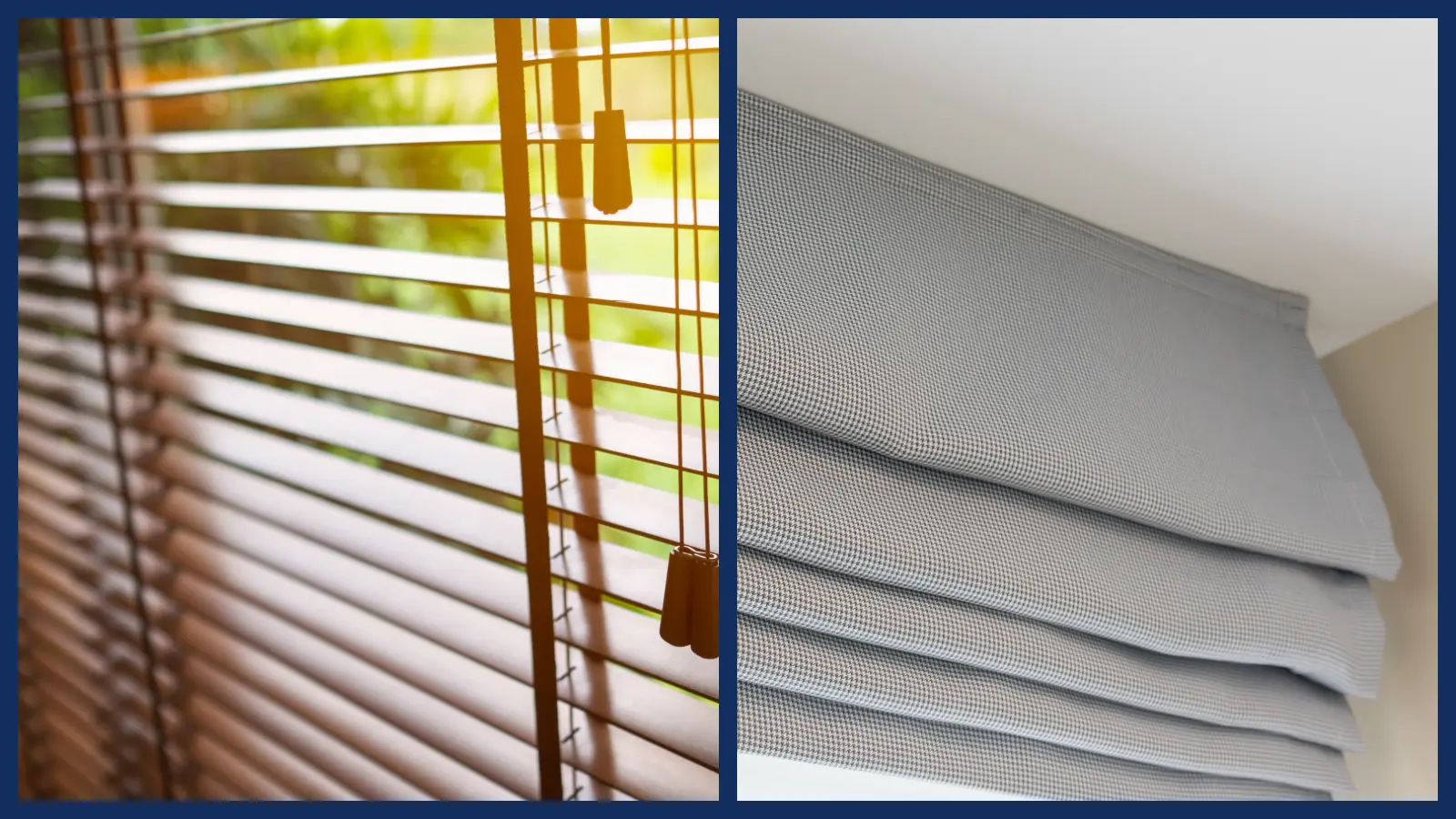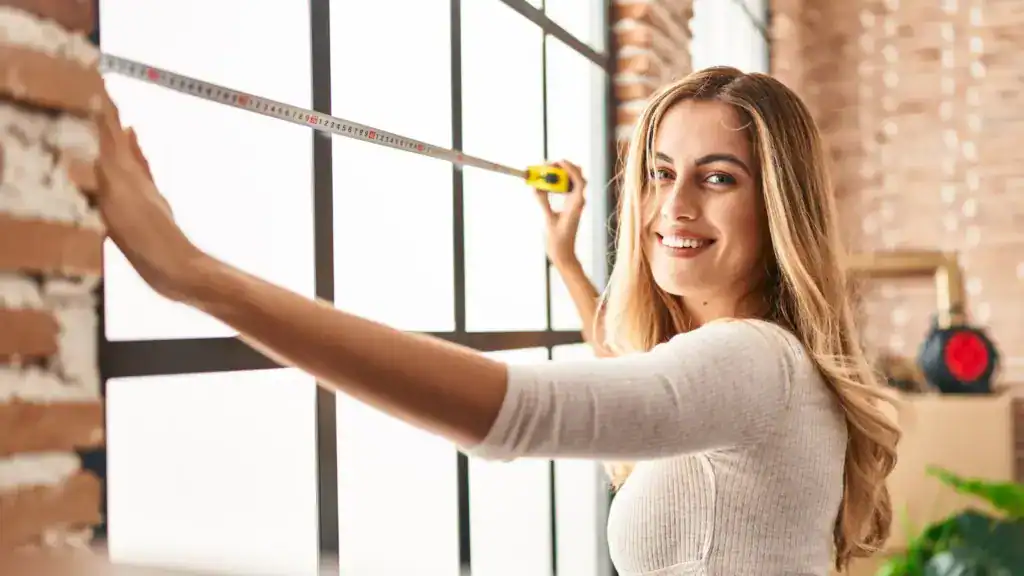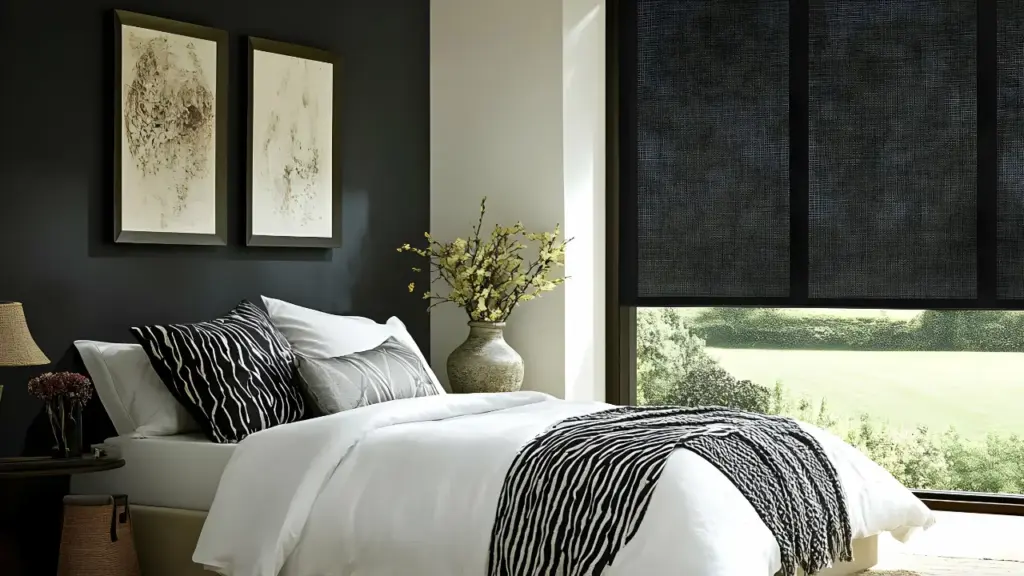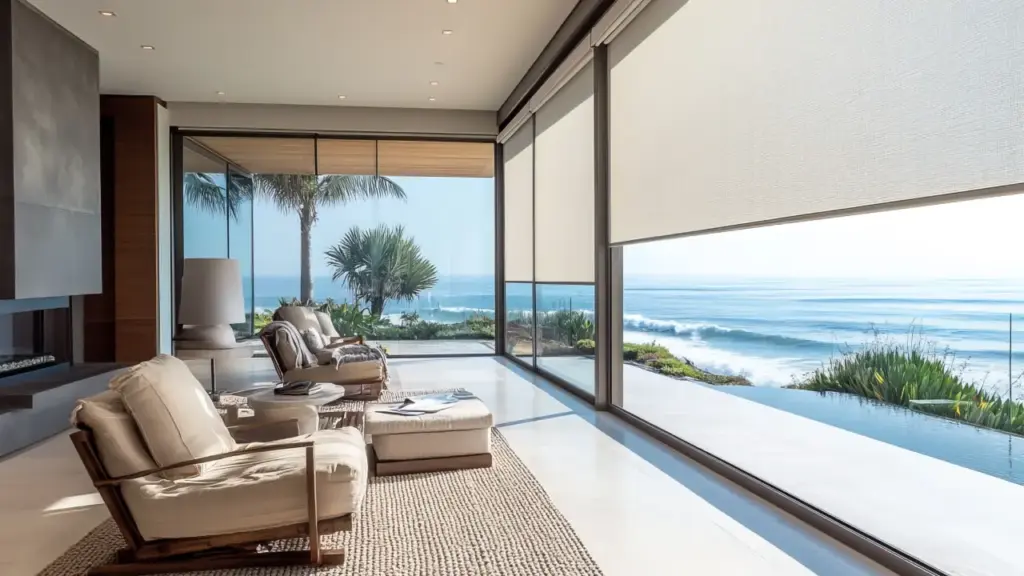Blinds Vs. Shades: Shedding Light on the Differences

Some people use “blinds” and “shades” almost interchangeably. But they’re very different window treatments that have very different pros and cons.
Your chosen treatment will profoundly affect your home decor, lighting, and energy bills. So, what exactly is the difference between blinds and shades? And how do you know which is right for your home?
The Difference Between Blinds & Shades
Horizontal blinds have a series of slats that can be raised and lowered with a cord, pulled up by hand, or controlled electronically. When raised, the slats lie flat above the window. You can also tilt them with a wand to adjust lighting and privacy. Motorized options eliminate the need for cords and wands and give you push button or automatic control.
Vertical blinds, on the other hand, have slats that run from top to bottom. These blinds are often used for sliding doors or expansive windows and can open to one side or split in the middle.
On the other hand, shades are made of one continuous piece of fabric and don’t have individual slats. They come in various styles, such as roller, Roman, blackout, and cellular/honeycomb shades.
Shades can be raised or lowered with a cord or spring mechanism; most offer motorized options.
Pros & Cons of Blinds
Pros
- Precise Light Control: Blinds offer precise control over the light entering a room. You can adjust the slats to direct or block light as needed.
- Privacy: Blinds let you maintain your privacy while permitting natural light to filter through. You can adjust the slats to achieve the desired level of privacy.
- Durability: Blinds, especially those made of wood or faux wood, are known for their durability and longevity. They can withstand wear and tear.
- Variety: Blinds come in various materials, colors, and styles to match your decor and style.
Cons
- Maintenance: Depending on the material, blinds require regular cleaning and dusting to keep them looking their best.
- Complex Cleaning: Cleaning the slats can be more time-consuming than other window treatments, as each slat needs individual attention.
- Less Insulation: Blinds provide less insulation than some shades, so they may not be as energy-efficient.
Pros & Cons of Shades
Pros
- Soft Elegance: Shades create a cozy and inviting ambiance, making them an excellent choice for bedrooms and living rooms.
- Insulation: Some shades, particularly cellular or honeycomb, provide excellent insulation. They help keep your home cool in the summer and warm in the winter.
- Easy Maintenance: Shades are relatively low-maintenance. Regular dusting or vacuuming is usually sufficient to keep them clean.
- Privacy: Shades offer a high level of privacy, especially when lowered all the way.
Cons
- Light Control: While shades offer privacy, they aren’t as precise as blinds for controlling light. You can adjust the level of natural light entering a room, but you can’t direct it as accurately.
- Durability: Some shades, such as Roman ones, can be delicate and require more care to avoid damage. Depending on the fabric and color, shades may fade over time.
- Higher Cost: Compared to blinds, shades tend to be slightly more expensive. Motorized options can also add to the cost.
Blinds Vs. Shades: Which Is Right for You?
Now that we’ve explored the individual characteristics of blinds and shades, it’s time to make an informed decision:
- If you value precise light control and a variety of styles, blinds might be your best choice. They’re perfect for kitchens, home offices, and spaces where you must adjust the light throughout the day.
- Shades are the way to go for a softer, more elegant look and potential energy savings. Bedrooms and living rooms, in particular, can benefit from the cozy ambiance they create.
More questions? Talk to us at Aero Shade or visit our Los Angeles showroom to view and test the working models of our window treatments. Or schedule a free, no-obligation, in-home estimate with one of our professionals.
FAQs: Blinds Vs. Shades
Q: Are blinds or shades more energy-efficient?
Depending on the type and material, blinds and shades can be energy-efficient. Cellular or honeycomb shades are known for their insulation properties, making them the best energy-efficient choice.
Q: Do blinds and shades come in different sizes?
Both blinds and shades are available in various sizes to fit different window dimensions. You can also opt for custom-made treatments for a perfect fit.
Q: Which window treatment is better for high-humidity areas like bathrooms?
For high-humidity areas, choose moisture-resistant materials. Blinds made of faux wood or vinyl and synthetic shades are good options.
Q: Can I combine blinds and shades for a layered look?
Many homeowners opt for a layered look, combining blinds and shades for enhanced light control and aesthetics. This combination allows for privacy and versatility in controlling natural light.
Q: How do motorized blinds and shades work?
Motorized blinds and shades operate through a built-in electric motor. It typically involves a remote control or wall switch, while some advanced models even offer smartphone app control.
Q: How long do blinds and shades usually last?
The lifespan of blinds and shades varies depending on their material and how well they’re maintained. Quality blinds and shades can last 15 years or more.
Q: How do I clean my blinds or shades?
For blinds, use a duster or vacuum with a brush attachment to clean each slat. Shades can be spot-cleaned with a mild detergent and sponge, but always check the manufacturer’s cleaning recommendations.
Q: Are blinds and shades safe for children and pets?
Some blinds and shades come with features like cordless or motorized operation, making them safer for households with children and pets. Always ensure dangling cords are out of reach.
Q: Can I install blinds or shades myself?
Many blinds and shades come with step-by-step instructions for DIY installation. However, you may want to consider professional installation for complex installations or large windows.
Q: Do darker shades provide better sun protection?
Darker shades can block more sunlight, reducing glare and protecting your furnishings from sun damage. However, they can also darken the room significantly when closed.
Q: Can I use blinds or shades on my patio doors?
Vertical blinds are a popular choice for patio doors. Cellular shades, roller shades, and certain styles of sheer shades can also work well.


